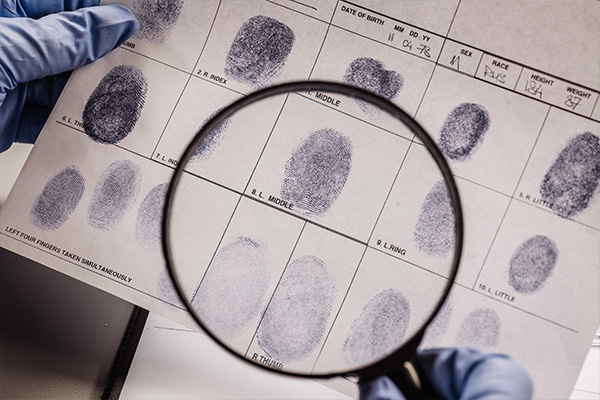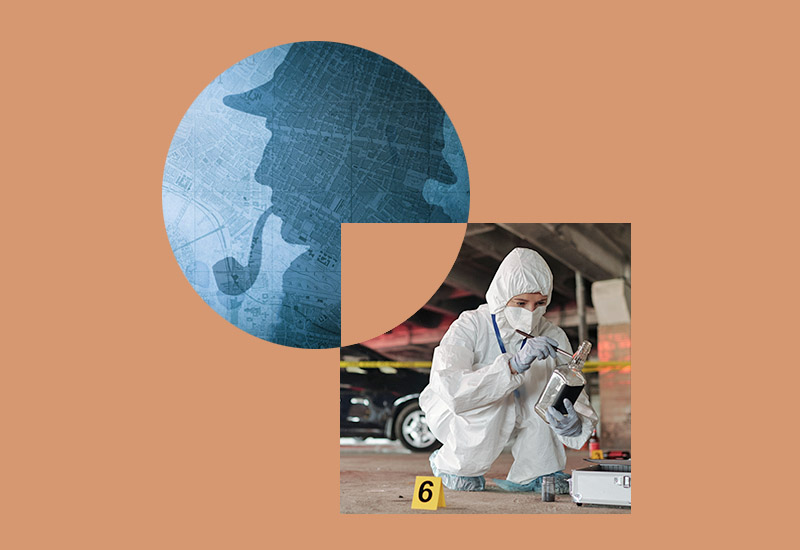Uncover the origins of modern forensic science.
This unit, led by Dr Ian Burney, will introduce you to selected topics in the legal application of medical and scientific expertise.
In this unit, you will explore the historical development and application of forensic techniques such as toxicology, psychiatry, crime scene analysis, and DNA profiling. You will investigate how these methods were presented to the public through detective fiction, newspapers, and forensic dramas. The unit also asks you to consider who makes claims to forensic truth and the tools and techniques they use, encouraging you to think critically about the relationship between science, media, and public understanding.
This unit does not require prior scientific, legal or historical knowledge.
This unit is accessible to undergraduate students from all disciplines.
About
Explore the historical development and application of forensic investigation techniques.
Through a historical perspective, you will learn about the historical development and application of forensic investigation techniques and how they were presented to the public in various media (e.g. detective fiction, newspaper reports, forensic television dramas).
You will also consider who makes claims to forensic truth and the tools and methods they use, encouraging critical reflection on the relationship between science, media, and public perception.
This unit does not require prior scientific, legal or historical knowledge; just a curiosity about styles of forensic investigation, past and present.

Unit details
What should I know about this unit?
UCIL32011 and UCIL32511
- Level 3
- 10 Credits or 20 credits
- Face-to-face
- Centre for the History of Science, Technology and Medicine
From Sherlock Holmes to CSI aims to:
- Introduce students to selected topics in the legal application of medical scientific expertise
- Contextualize contemporary understandings of and interest in forensics and its popular representations.
- Consider who make claims to specific forms of forensic truth, the tools and techniques they use to arrive at that conclusion, how these conclusions are contested, and how these contestations are resolved.
On completion of this Unit, students will have acquired a knowledge of the basic features of historical developments in forensic medicine and science from the 19th century to the near-present; skills in linking the social, institutional and technical foundations for rise of specific forensic techniques to sources of debate in the medical, scientific, legal and public domains concerning the credibility of forensic evidence. They will develop critical abilities in analysing historical arguments; gain experience of presenting historical arguments in written assignments; and experience of presenting oral arguments in seminar discussions.
In addition, for 20 credits, students will have acquired experience of researching and writinga literature-based review, integrating scientific, historical and social viewpoints
- From Sherlock Holmes to CSI: An introduction and overview
- Histories of Expertise
- Poison and the Victorians
- Determining Sanity
- Technologies of Identity
- Tales from the Dead
- Making the Crime Scene
- Experts and Trust
- Forensics in the DNA Age
- Watching the detectives
- Course Review
- Weekly one hour, live and in-person lectures
- Weekly one hour, live and in-person small group seminars
Lectures and seminars are both live and conducted face on campus. Lectures will also be podcast and made available on Canvas. Seminars are informal and relaxed and you are encouraged to speak freely. Attendance at seminars is required each week.
10 Credits (UCIL32011)
- 1500-word coursework essay (50%)
- Online, open-book exam, 2 from 5 essays, 2 hour restricted time window (50%)
20 Credits (UCIL32511)
- 1500-word coursework essay (25%)
- Online, open-book exam, 2 from 5 essays, 2 hour restricted time window (25%)
- 3500-word project essay (50%)
Dr Ian Burney
UCIL units are designed to be accessible to undergraduate students from all disciplines.
UCIL units are credit-bearing and it is not possible to audit UCIL units or take them for additional/extra credits. You must enrol following the standard procedure for your School when adding units outside of your home School.
If you are not sure if you are able to enrol on UCIL units you should contact your School Undergraduate office. You may wish to contact your programme director if your programme does not currently allow you to take a UCIL unit.
How to enrol
UCIL units are designed to be accessible to undergraduate students from all disciplines. Depending on your School enrolment can be completed in one of two ways:
Enrolment using the Course Selection System
You may be able to enrol directly onto a UCIL unit using the Course Unit Enrolment System.
Enrolment via your School
If you cannot see the UCIL unit you wish to study or it is blocked out on the Course Unit Enrolment System you may need to request approval to study the unit directly from your School.
Please get in touch with the UCIL team at ucil@manchester.ac.uk if you have any questions.
Student testimonial
I enjoyed this course as it delves deep into the investigatory side of Criminology rather than just societal trends and patterns. Not only is it really interesting but it is engaging to have a lecturer so passionate. Many of the texts I used have been written by the lecturer himself.
Joe Hindley
Mathematics student


